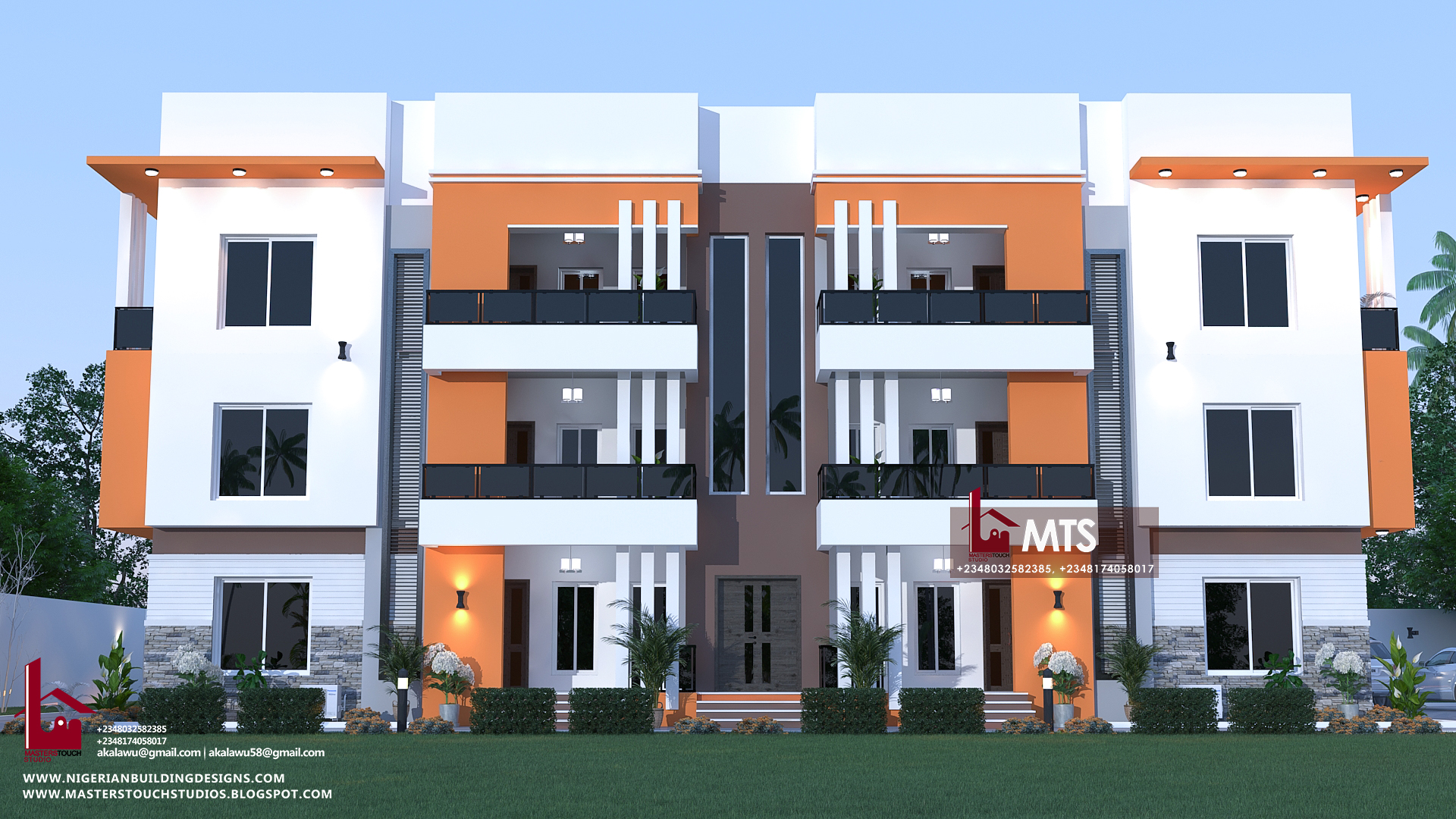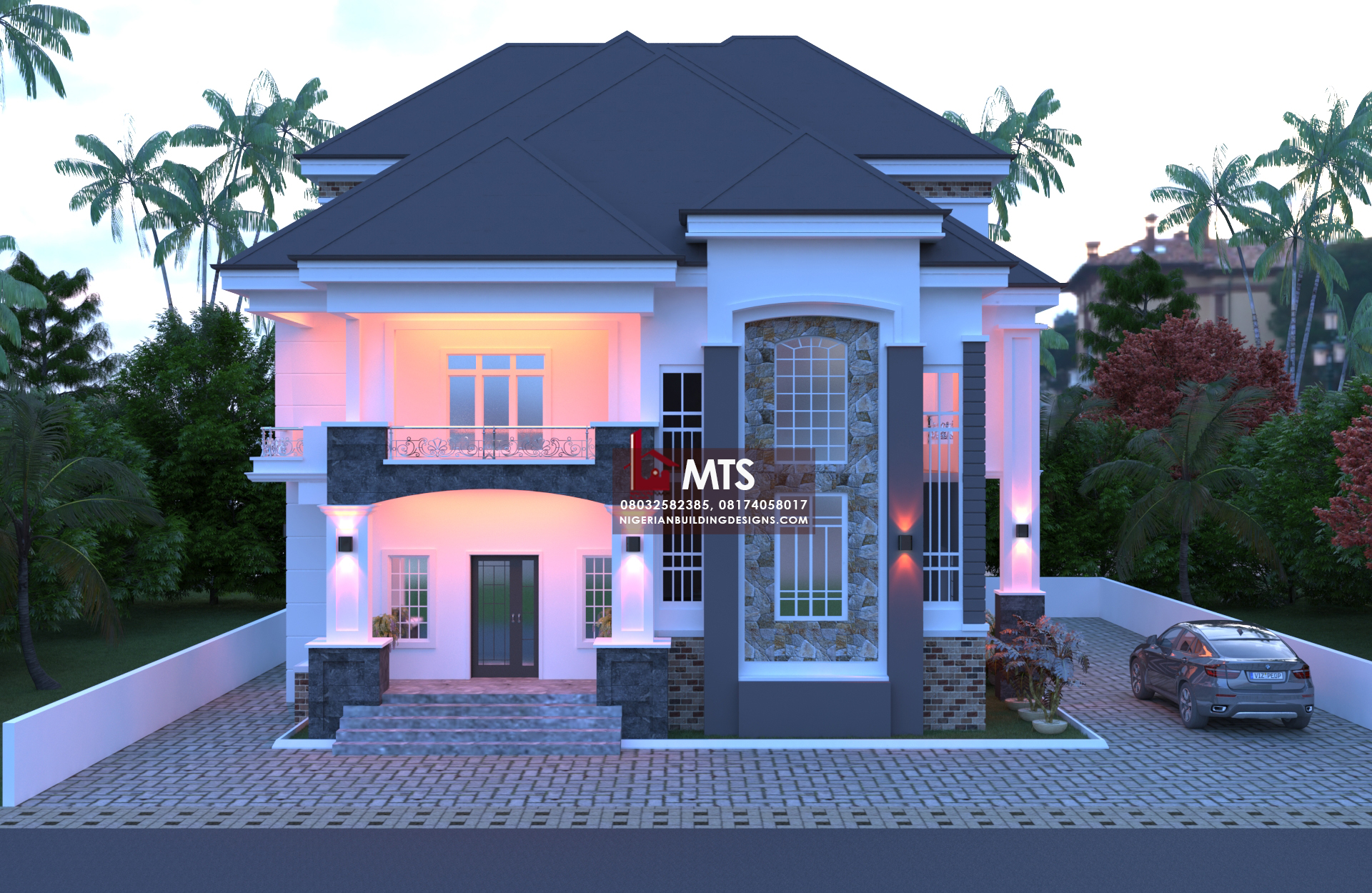Understanding the Nigerian Housing Market

The Nigerian housing market is a dynamic landscape, characterized by a complex interplay of economic, social, and demographic factors. Demand for housing, particularly for 2-bedroom flats, has witnessed significant growth in recent years, reflecting a combination of factors like urbanization, population growth, and evolving lifestyles.
Demand for 2-Bedroom Flats in Nigeria
The demand for 2-bedroom flats in Nigeria is driven by a confluence of factors, including affordability, lifestyle preferences, and family size. These flats are generally considered more manageable than larger units, making them attractive to a wide range of buyers.
- Affordability: 2-bedroom flats are often priced lower than larger units, making them a more accessible option for many Nigerians. This is particularly relevant in urban areas where housing costs are typically higher.
- Lifestyle: 2-bedroom flats offer a balance between space and affordability, appealing to individuals and young couples seeking a comfortable living environment without the burden of larger, more expensive properties.
- Family Size: For families with one or two children, a 2-bedroom flat provides ample space for comfortable living. It is a popular choice for young families starting out or those seeking a more manageable living arrangement.
Price Variations Across Nigerian Cities
The cost of 2-bedroom flats varies significantly across different cities in Nigeria, reflecting local market dynamics and economic conditions. Some cities, particularly those with higher levels of economic activity and urban development, tend to have higher housing prices.
- Lagos: As the commercial capital of Nigeria, Lagos experiences high demand for housing, driving up prices for 2-bedroom flats. Depending on the location and amenities, a 2-bedroom flat in Lagos can range from NGN 10 million to NGN 50 million or more.
- Abuja: As the federal capital territory, Abuja also witnesses significant demand for housing. Prices for 2-bedroom flats can range from NGN 15 million to NGN 30 million, depending on location and quality.
- Port Harcourt: A major oil and gas hub, Port Harcourt experiences a strong housing market. Prices for 2-bedroom flats can range from NGN 10 million to NGN 25 million, depending on the location and amenities.
Design Considerations for 2-Bedroom Flats in Nigeria: 2 Bedroom Flat Floor Plan In Nigeria

Designing a 2-bedroom flat in Nigeria requires careful consideration of the local climate, cultural preferences, and the need for functional and comfortable living spaces. This guide explores essential design elements, layout options, and examples of successful 2-bedroom flat designs in Nigeria, offering insights into creating practical and aesthetically pleasing homes.
Climate and Cultural Considerations
The tropical climate of Nigeria presents unique challenges and opportunities for residential design. High temperatures, humidity, and rainfall necessitate solutions that promote ventilation, natural light, and thermal comfort. Cultural preferences, such as the importance of family gatherings and communal spaces, influence the layout and design of living areas.
- Ventilation and Natural Light: Incorporating large windows, balconies, and cross-ventilation systems allows for optimal air circulation and reduces reliance on air conditioning. This is crucial for maintaining a comfortable indoor environment, especially during the hot and humid seasons.
- Thermal Comfort: Utilizing materials with high thermal insulation, such as concrete blocks, and incorporating shading devices like awnings and overhangs can minimize heat gain and maintain a cooler interior temperature. This is essential for energy efficiency and occupant comfort.
- Cultural Preferences: Designing for family gatherings and communal living is paramount. Open-plan living spaces, large kitchens, and outdoor areas encourage social interaction and cater to the Nigerian cultural preference for hospitality.
Layout Options for 2-Bedroom Flats
The layout of a 2-bedroom flat can significantly impact its functionality and aesthetic appeal. Various layout options cater to different needs and preferences, each offering unique advantages.
- Open-Plan Living Spaces: Combining the living room, dining area, and kitchen into a single, open space creates a sense of spaciousness and encourages interaction. This layout is popular in modern homes, offering flexibility and maximizing natural light.
- Separate Bedrooms: Providing distinct and private bedrooms ensures a sense of personal space and allows for individual preferences. This layout is particularly suitable for families or individuals who value privacy and quiet time.
- Designated Kitchen and Dining Areas: Separating the kitchen from the living area allows for a more defined cooking and dining experience. This layout provides a dedicated space for meal preparation and encourages a sense of order and organization.
Examples of Successful 2-Bedroom Flat Designs in Nigeria
Several successful 2-bedroom flat designs in Nigeria showcase practical features and aesthetic appeal. These designs demonstrate how to effectively incorporate climate and cultural considerations into the layout and design elements.
- The “Green Haven” Flat: This design prioritizes sustainability and energy efficiency. It features a green roof, solar panels, and a rainwater harvesting system, minimizing environmental impact while maximizing energy savings. The open-plan living area allows for natural light and ventilation, while the bedrooms offer privacy and comfort.
- The “Family Comfort” Flat: This design focuses on creating a comfortable and welcoming living space for families. It features a spacious living room with ample seating, a large kitchen with a dining area, and bedrooms with built-in wardrobes. The inclusion of a balcony provides an outdoor space for relaxation and social gatherings.
- The “Modern Minimalist” Flat: This design emphasizes clean lines, simple forms, and a minimalist aesthetic. It features a spacious open-plan living area, a sleek kitchen with modern appliances, and bedrooms with minimalist furniture. The use of neutral colors and natural materials creates a calm and serene atmosphere.
Essential Features and Amenities

In the competitive Nigerian housing market, a 2-bedroom flat needs to offer more than just basic living spaces. It’s crucial to incorporate features and amenities that cater to the modern buyer’s needs and desires, creating comfortable, functional, and desirable living spaces.
Importance of Natural Light and Ventilation
Adequate natural light and ventilation are fundamental to a comfortable living environment. They contribute to a sense of spaciousness, improve air quality, and enhance overall well-being. In the context of 2-bedroom flats in Nigeria, incorporating these elements is essential for creating homes that are both functional and aesthetically pleasing.
Natural light and ventilation are key factors in promoting a healthy and comfortable living environment.
- Large Windows: Maximize natural light by incorporating large windows in living areas and bedrooms. This not only brightens the space but also allows for cross-ventilation, promoting air circulation and reducing the reliance on artificial lighting during the day.
- Open Floor Plans: Open floor plans, where living areas are interconnected, promote a sense of spaciousness and allow for natural light to penetrate deeper into the flat. This is especially beneficial in smaller 2-bedroom units, where maximizing space is crucial.
- Balconies: Balconies provide an additional outdoor space for relaxation, fresh air, and natural light. They can also serve as an extension of the living area, creating a seamless transition between indoors and outdoors.
The Role of Sustainable Design Elements, 2 bedroom flat floor plan in nigeria
Sustainable design elements are becoming increasingly important in the Nigerian housing market. These elements contribute to energy efficiency, reduce environmental impact, and ultimately, lower living costs. Incorporating sustainable features into 2-bedroom flats promotes a responsible and environmentally conscious approach to homeownership.
Sustainable design elements in 2-bedroom flats can lead to lower energy bills and a smaller environmental footprint.
- Energy-Efficient Appliances: Choosing appliances with energy-efficient ratings, such as refrigerators, washing machines, and air conditioners, can significantly reduce energy consumption and lower utility bills. This is especially relevant in Nigeria, where electricity costs can be a significant household expense.
- Solar Water Heaters: Installing solar water heaters can reduce reliance on electricity for heating water, leading to substantial energy savings. This is particularly beneficial in areas with abundant sunshine, such as many parts of Nigeria.
- Rainwater Harvesting: Implementing rainwater harvesting systems can provide a sustainable source of water for non-potable uses, such as gardening or flushing toilets. This conserves water resources and reduces reliance on municipal water supplies.
